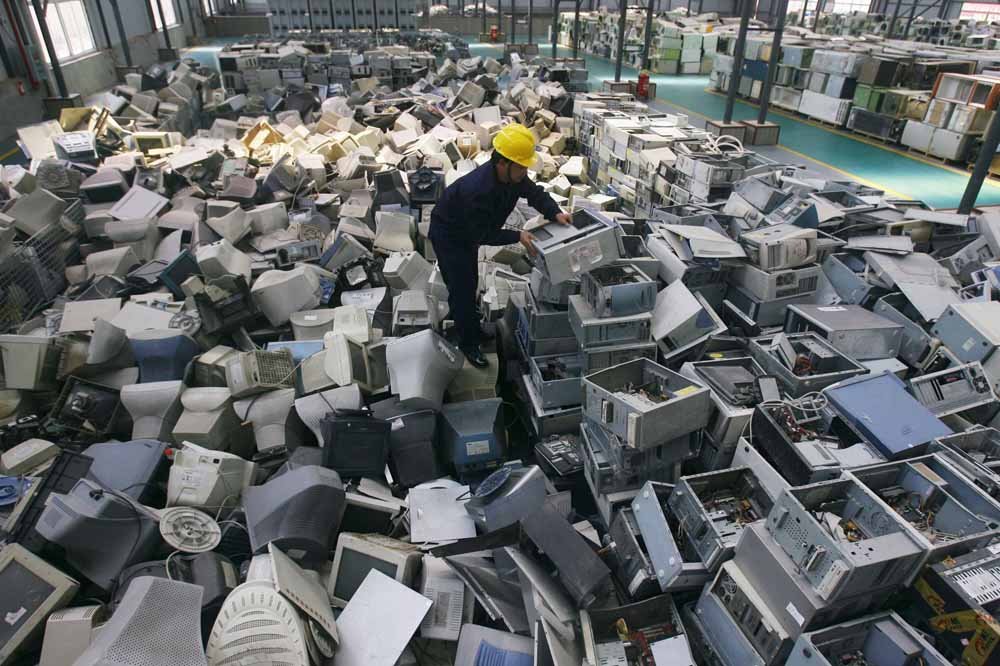From the smartphones you carry in your pocket to the laptops that power your work and entertainment, electronics have revolutionized the way people live. However, so does the alarming issue of electronic waste, or e-waste, and its detrimental impact on the environment. This article will delve into the profound environmental consequences of e-waste and emphasize the pressing need for responsible disposal. Additionally, it will explore HDD shredders as an innovative solution to securely dispose of old electronics while safeguarding sensitive data.
What is E-Waste?
E-waste refers to any discarded electronic devices and components. These can range from outdated laptops and smartphones to old televisions and printers. While it’s tempting to simply toss these items in the trash, doing so can have serious consequences for the environment. Electronics contain a variety of hazardous materials, including lead, mercury, and cadmium, which can leach into the soil and water when left to rot in landfills.
The Environmental Impact of E-Waste
The improper disposal of electronic waste poses a significant threat to the environment. Here are some of the key environmental impacts associated with e-waste:
Toxic Chemical Leaching: As mentioned earlier, electronic devices contain toxic chemicals that can seep into the soil and water, contaminating ecosystems and harming wildlife. This pollution can also find its way into the food chain, posing risks to human health.
Resource Depletion: Electronics are made from a wide range of materials, including rare and valuable metals like gold, silver, and copper. When e-waste is not properly recycled, these resources go to waste, driving up the demand for new mining and extraction, which can lead to habitat destruction and increased greenhouse gas emissions.
Energy Consumption: The manufacturing, transportation, and disposal of electronics consume a significant amount of energy. By recycling and reusing electronics, you can reduce the energy demand associated with producing new devices.
The Need for Responsible Disposal
Given the environmental challenges posed by e-waste, it’s crucial that people adopt responsible disposal practices. Here are some steps you can take to ensure your electronics are disposed of in an environmentally friendly manner:
Reuse: Before discarding your old electronics, consider whether they can still serve a purpose. Can you donate them to a charity, a school, or a local community center? Reusing devices reduces the demand for new manufacturing and minimizes waste.
Recycle: Recycling e-waste is essential. Many electronics contain valuable materials that can be recovered and reused. Look for local recycling programs or drop-off centers that accept electronic devices. Some electronics retailers also offer recycling services for old gadgets.
Data Security: Before disposing of devices like computers and hard drives, make sure to wipe all personal data securely. Use data erasure software or physically destroy the drives to prevent data breaches.
Secure and Responsible Hard Drive Disposal
When it comes to securely disposing of old electronics, especially hard drives that store sensitive data, hard drive shredders offer an effective solution. These devices are designed to physically destroy hard drives and other storage media, ensuring that data is irrecoverable.
HDD shredders work by shredding the drive into small pieces, rendering it completely unusable. This not only protects your sensitive information but also ensures that the drive is ready for recycling without the risk of data breaches.
Conclusion
Electronic waste is a growing concern for the environment, but by adopting responsible disposal practices, people can mitigate its impact. Reusing and recycling old electronics, along with securely disposing of sensitive data through methods like hard drive shredding, are steps in the right direction. Consumers also have a role to play in reducing e-waste and protecting the environment for future generations. By making informed choices and being conscious of your electronic consumption, you can make a positive impact on the world.
















